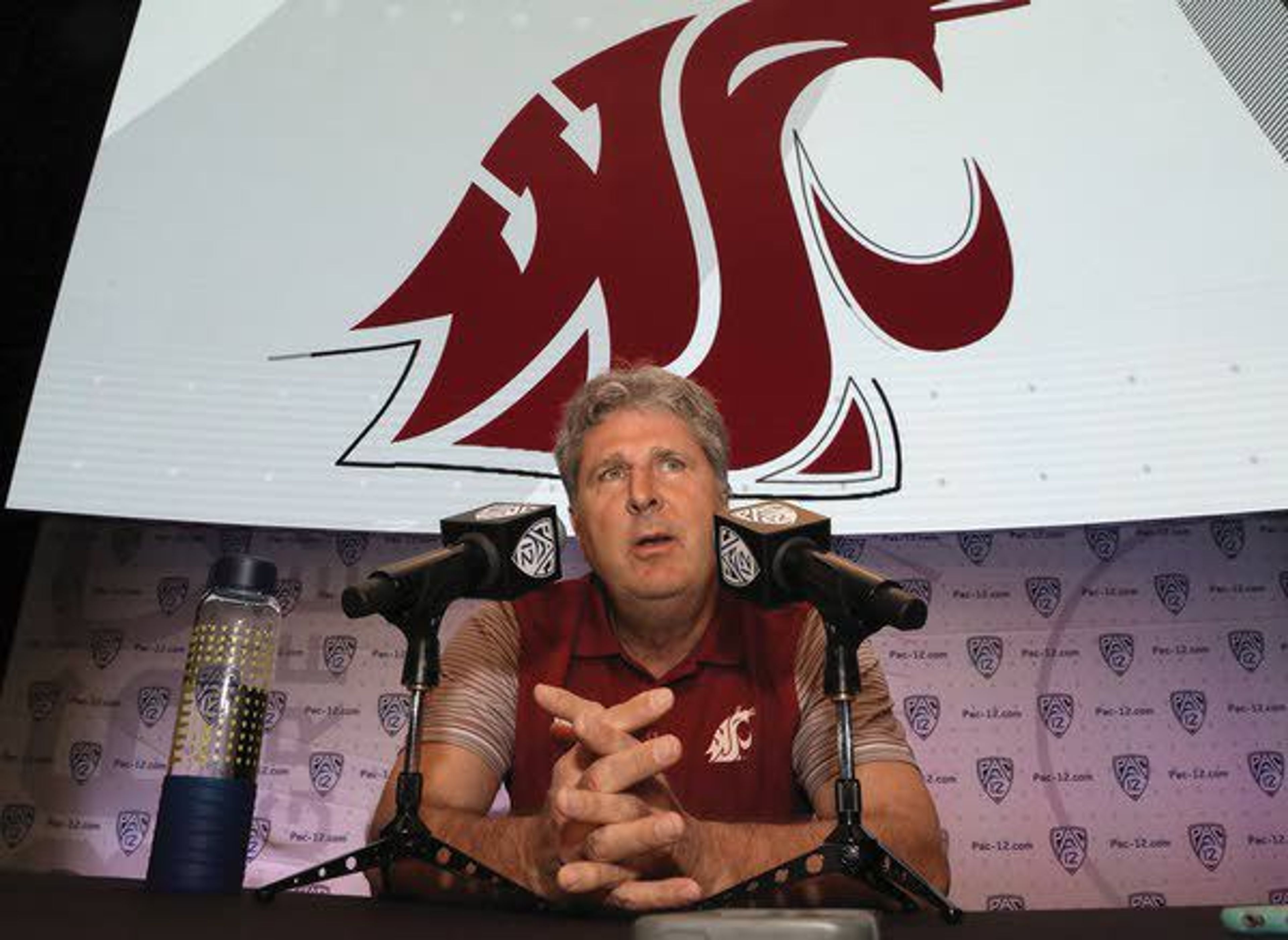Leach: Yes, sometimes being harsh probably backfires
But that doesn't mean a change is coming
By Mike Leach's standards, Washington State players' disappointing performance last week at Arizona hasn't elicited an especially harsh critique from their demanding coach.
That's probably because he appreciated the Cougars' high effort level in the 58-27 loss, even though "we played just outright dumb."
But in his weekly news conference, Leach spoke with surprising candor about his sometimes severe criticism of players, acknowledging that this approach probably backfires on occasion.
"I suspect it has," Leach said. "Because I know being too positive has (backfired)."
He was responding to a teleconference question Monday by a San Francisco Chronicle writer, who posed a number of other questions that don't often get asked these days by WSU beat reporters. With the Cougars' recent success, their unpredictable, convention-defying coach is giving fuller, more detailed responses than usual to certain questions.
The No. 25 Cougars (7-2, 4-2) are preparing to face a San Francisco-area team, No. 18 Stanford (6-2, 5-1), in a Pac-12 football game in Pullman on Saturday (12:30 p.m., FOX).
Leach suggested he tries to vary the tone of his messages to players, some of whom respond better than others to harsh criticism.
"I do think that you're trying to always find that balance and that medium," he said. "The other thing that I think is tricky is that there's 120 players out there (on a team), and in the course of that I think the message reaches some in a different way than it does others. One approach, you might get some and not others. And it's always a bit of a struggle anytime there's a big group dynamic."
The San Francisco writer also asked Leach why he showed up nearly 40 minutes late for the news conference, apparently unaware this wasn't unusual. Leach typically arrives at the Cougar Football Complex between 10 and 45 minutes after the scheduled 2 p.m. start of those Monday sessions. Reporters on the premises generally wait while those on the teleconference system are placed on hold.
"I had other obligations and I got here 40 minutes late," Leach replied. "Fortunes of war. We're way up north here and this is a tough place, so that's the way it happens sometimes. I hope you feel better accommodated next time."
The writer went on to ask about Leach's reading list, having heard about the coach's wide range of interests.
Among the books he has acquired and intends to read, Leach said, were "Outlaw Journalist: The Life and Times of Hunter S. Thompson" by William McKeen; a book about Stiltsville, a group of stilt houses of historical interest off the Florida coast; "The Rise and Fall of the Third Reich" by William L. Shirer; a biography of Sparky Anderson; and something by Ernest Hemingway that Leach didn't specify.
Asked about his favorite books on one of his pet subjects, pirates, Leach recommended "Under the Black Flag" by David Cordingly and a first-hand account published in 1678 by Alexandre Exquemelin, "Buccaneers of America."
Then came more familiar questions: Why pirates, Mike? And how does the study of pirates apply to football?
Again, it's all about group dynamics, as Leach has explained many times.
"In football, you've got people from all walks of life ... rich, poor, black, white, occasionally somebody with a different language or culture," Leach said. "So I think that's fascinating. And they get to kind of draw from the experiences of one another. There are elements of that that definitely existed with pirates, and the group unifying around the cause of everybody fighting for one another.
Allusions to pirate culture "can be kind of a colorful way to illustrate that," he said, "that I've found is kind of captivating for the players."
Dale Grummert may be contacted at daleg@lmtribune.com or (208) 848-2290.








